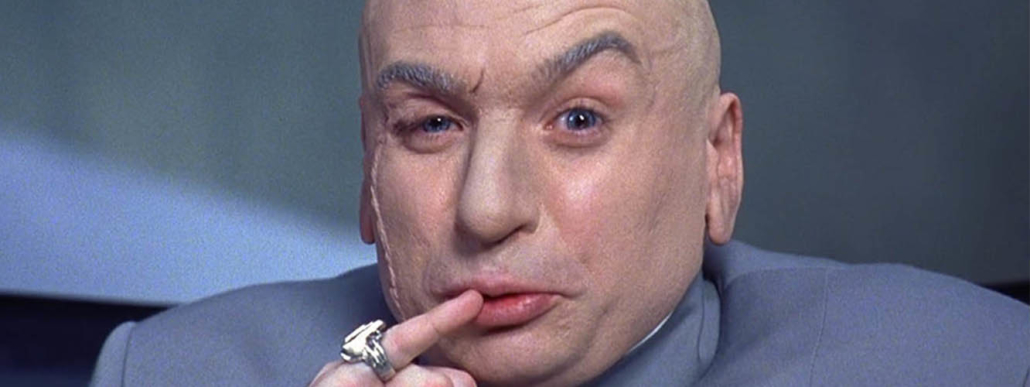
How can one determine if an individual has what it takes for leadership?
There is a myriad of diagnostic tests, profiles, evaluations, and assessments that offer insights into leadership ability, or a lack thereof. The challenge with many of these tools is that are overly analytical, very theoretical, and subject to bias as they put people in colors, codes, boxes, dimensions or simply tagged. The draw to these avenues is quite clear; they are fast and relatively inexpensive. I have nothing against this tactic. I have used many of the assessments.
The easier method for determining if someone is capable of leading is actually quite simple: give him or her some responsibility and see what he or she does with it.
Individuals who are people leaders or leaders of a project will ultimately produce results. One can only hope that the results are positive ones but even so, the key here is learning as to what the individual is or isn’t capable of accomplishing.
Just because someone is in a leadership position, doesn’t necessarily mean they should be. The key is to spot the ineffective leaders so you can course correct as soon as possible. Here are 8 things to take notice.
Lacks Character:
A leader who lacks character or integrity will not last over time. It doesn’t matter how intelligent, persuasive, or charismatic a person is, if they are prone to rationalizing unethical behavior or looking the other way, they will eventually fall prey to their own undoing. Modeling this behavior is toxic.
Lacks Performance:
Leaders are expected to fulfill certain measures. While past performance is not always a certain indicator of future events but is something that should not be overlooked. Someone who has consistently experienced success in leadership roles has a much better chance of success than someone who has not. It’s important to remember unproven leaders come with a high-risk premium but that doesn’t mean they should be counted out. In fact, it may mean they will require more resources in supporting their development.
Lacks Communication Skills:
Great leaders can communicate effectively across mediums, constituencies, and environments. They are active listeners, fluid thinkers, and know when to dial it up, down, or off. Remember that this IS a skill to be honed and developed over time. In fact, many of the most memorable speeches by key leaders had many hours of practice and many people supporting the delivery of their presentation.
Lacks Humility:
A selfless leader is a powerful leader and one who empowers their team and people around them. There is no room for the arrogance of an inflated sense of self. If a leader doesn’t understand the concept of “service above self” they will not build the trust, confidence, and loyalty of those they lead. Simply put; if a leader receives a vote of non-confidence from their people…game over. Situational Leadership is an excellent model to support leaders who are seeking growth and development in this area.
Lacks Flexibility:
Great leaders are fluid and flexible in their approach. They recognize that leading is not a “one size fits all” approach and that to be successful, they must recognize both the temperature of their people as well as the norms of the culture in which they work. “My way or the highway” leadership styles don’t play well in today’s world, and typically produced the opposite results intended.
Lacks Vision:
No vision equals no leadership. Leaders must design the vision. The best leaders focus on leading change and innovation to keep their organizations relevant and thriving while empowering their people and gaining their votes. Leaders who cannot provide direction are spotted quickly. The giveaway is both their inability to communicate their vision as well as the immediate team of supporters they associate with. Communication is a skill that can be worked on over time. However, the vision is conceptualized by the leader in charge. It should be clear enough to ensure a healthy conversation to crystallize the message.
Lacks Commitment:
Leaders fully commit to investing in those they lead. This looks likes supporting their team, mentoring and coaching their team, and they truly care for their team which is visible by their people. A leader not fully invested in their team won’t have a team and will find themselves leading an army of one…themselves.
Lacks Accountability:
Real leaders are accountable both in their actions and non-actions. They don’t blame others, don’t claim credit for the success of their team, and always accept responsibility for failures that occur on their watch. There isn’t too much grey area here. Successful leaders are accountable to their team. Bottom line – leaders must be accountable to their people. If not, their people will hold them accountable.
Find my suggested reading to overcome bad leadership here:
Finding, grooming, electing or choosing leaders or people for leadership roles is not an exact science and even with all the tools that exist – sometimes it comes down to more basic observation than online assessment. You want to make sure that your leaders are honest, have a demonstrated track record of success, well-spoken, committed to serving those they lead, be fluid in approach, possess focus, and have won the trust of the people they are leading.
With Leadership,
Joshua
www.JoshHMiller.com

Joshua Miller is a creative leader and impactful executive coach.
His career spans both the advertising world and the world of leadership. In advertising, he was the creative lead, responsible for the campaign strategy for Fortune 100 brands. Today, he is an innovator. He’s supporting the executive development and change management for many of the same companies.
Joshua studied at Syracuse University, NYU and Stanford. He combines that background with his deep knowledge of organizational behavior, performance and change management. He focuses on the analysis, design, development, delivery, and evaluation of scalable and global talent development solutions programs.
Joshua is a Master Certified Coach. He trained with the International Coaching Federation and CTI (The Coaches Training Institute).